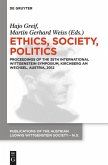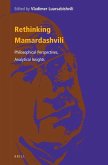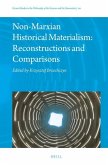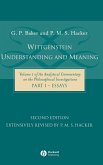Wittgenstein and Normative Inquiry examines the relevance of Ludwig Wittgenstein's philosophy for ethics, aesthetics, political philosophy, and religion. It analyzes the intellectual contexts which shaped Wittgenstein's normative thought, traces his influences, and presents contemporary uses of his philosophy in normative fields.
The chapters focus on the nature of normative inquiry. Together, they present a Wittgensteinian approach to normative inquiry, which, while broad and contested, stands in contrast to dominant deductive approaches. Arguing to normative conclusions by showing family resemblances, drawing analogies, using persuasion, appealing to naturalist arguments, authors and Wittgensteinians discussed by them expand our notion of normative inquiry.
Hinweis: Dieser Artikel kann nur an eine deutsche Lieferadresse ausgeliefert werden.
The chapters focus on the nature of normative inquiry. Together, they present a Wittgensteinian approach to normative inquiry, which, while broad and contested, stands in contrast to dominant deductive approaches. Arguing to normative conclusions by showing family resemblances, drawing analogies, using persuasion, appealing to naturalist arguments, authors and Wittgensteinians discussed by them expand our notion of normative inquiry.
Hinweis: Dieser Artikel kann nur an eine deutsche Lieferadresse ausgeliefert werden.








